‘Unprecedented’: Western media wakes up to Iran’s military prowess against Israel
By Maryam Qarehgozlou
Iran’s unprecedented retaliatory military operation against Israel, which proved the Islamic Republic’s phenomenal military prowess, prompted Western media outlets to eat the humble pie.
The same mainstream news outlets that downplayed and belittled the Islamic Republic of Iran’s military technology were taken aback and forced to adopt a different tone after the ‘Operation True Promise’
Late on Saturday, Iran launched a barrage of missiles and suicide drones in its first direct attack on the occupied territories in retaliation for the regime’s strike on its Damascus consulate on April 1, which led to the assassination of seven officers of the Islamic Revolution Guards Corps (IRGC), including two high-ranking commanders.
The operation that Iran declared was “limited” in scope included at least four waves of drone attacks and a volley of cruise and ballistic missiles. The main targets were Israeli military bases in the Golan Heights and the Negev desert used in the terrorist attack on the Iranian consulate in Damascus.
After the attack, Iran warned Israel of a “severe response” should it resort to another military adventure against Tehran and urged its allies, particularly the United States, to “stay away.”
The news of Iran’s retaliatory operation against Israel grabbed headlines worldwide. While the Western media skewed coverage toward Israeli narratives, they could not overlook Iran’s military capacity.
‘Unprecedented attack’
CNN, a prominent news channel and website headquartered in the United States said the Islamic Republic of Iran’s “large-scale retaliatory strikes” against Israel were “unprecedented.”
It projected that Iran’s operation, which brought the “long-running shadow war” between the two sides into the open, could raise the prospect of “full-blown regional conflict.”
While the network could not avoid the pro-Israel bias and look at the latest escalation through the prism of “shadow conflict” and “regional conflict”, it acknowledged the fact that Iran is capable of defending itself and has the military prowess to respond to any aggression.
Associated Press, an American news agency headquartered in New York City, reported that Iran’s “unprecedented revenge mission” sounded air raid sirens across the occupied territories.
The word “unprecedented” echoed across the Western media, demonstrating that the Israeli regime was not expecting or prepared for a military operation like that and was truly historic in every sense.
The British daily newspaper Guardian, too, described the operation as “unprecedented.”
It said that Israel “claimed” to have intercepted 99 percent of the launches with the “help of key Western allies” including the US, UK and Jordan, and added that some ballistic missiles that had reached the occupied territories damaged the “key” Nevatim air base in southern Israel.
The claim of 99 percent interception, however, did not hold water as video footage circulating on social media proved. Most of the missiles struck the intended targets amid the information blackout.
NPR, an American media organization headquartered in Washington DC and Financial Times, a British daily business newspaper, also called Iran’s retaliatory attack “unprecedented.”
‘Largest ever drone strike in the world’
Aljazeera, a media conglomerate headquartered in Doha, funded in part by the government of Qatar, said Iran’s ‘Operation True Promise’ was “a historic” attack on the Israeli regime.
“Iran has just launched the largest ever drone strike in the world, and the biggest missile attack in its history,” the report said, reiterating what many news outlets said.
It was truly the largest-ever drone attack launched by any country, attesting to the fact that Iran is a global drone power today, despite years of crippling and unjust sanctions.
For years, Western media lived in denial about Iran’s rapid military advancements. Finally, after the Saturday night shower of drones, they woke up to Iran's astonishing military prowess.
It is estimated that a total of 400 to 500 drones were launched towards the occupied territories.
Aljazeera added that the overnight, retaliatory strike “set some major political and military precedents.”
‘A fearsome arsenal’
American daily newspaper Washington Post said Iran’s “massive” drone and missile attack against Israel was a “stunning assault” that put the Israeli military “on high alert.”
The report also noted that the Israeli military warned settlers to “brace for an attack of undetermined scale” which closed schools and banned large gatherings, while some airports in the region halted operations.
Israelis had to endure a “days-long” and “dread-filled” countdown in anticipation of an Iranian counterattack after they struck its diplomatic compound in Damascus, according to the Post.
The report also quoted military experts warning that “Iran was capable of deploying a fearsome arsenal.”
“With a combination of drones, cruise missiles and likely ballistic missiles to come, what they are trying to do is to overwhelm the system,” Yaakov Amidror, a former Israeli brigadier general and military adviser was quoted as saying by the newspaper.
“Each is problematic by itself, but together they are more challenging. This is unprecedented. It means Iran opened a new chapter in the war.”
‘Weakened deterrent capacity’
David Horovitz, the founding editor of The Times of Israel, wrote on Monday that Israel has targeted senior Iranian officials in the past — including the “father” of the Iranian nuclear program, Mohsen Fakhrizadeh, on Iranian soil — “without prompting anything like the Saturday night response.”
The difference this time, according to Horovitz, was Israel’s “weakened deterrent capacity” over the past year-plus, and especially given the failures of October 7 after the Palestinian resistance movement Hamas carried out Operation Al-Aqsa Storm into the occupied territories.
After years of “relentless threats” against Iran’s nuclear facilities, it was Iran that launched the first major attack between the two sides, he added.
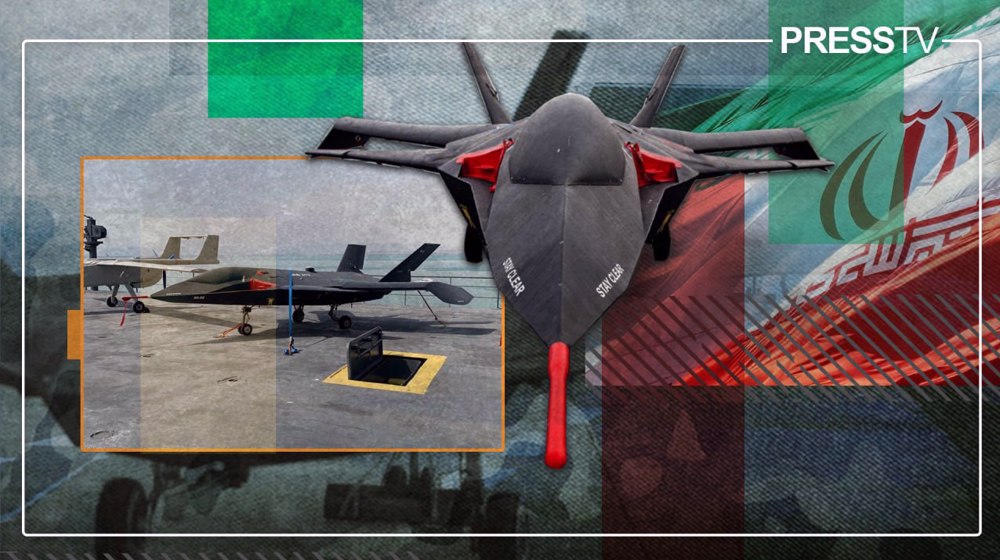
Explainer: How does carrier-based Jas-313 drone boost Iran’s naval capabilities?
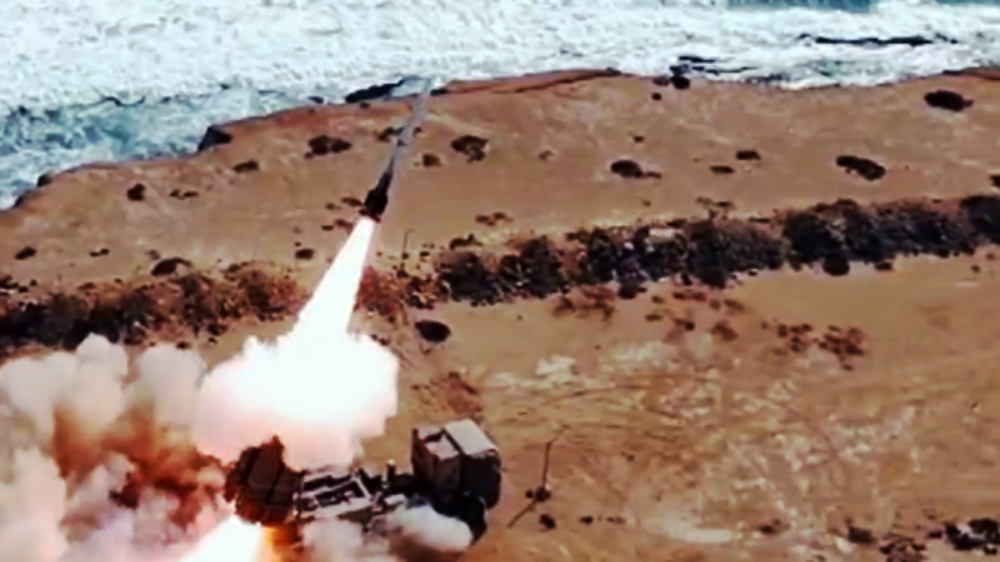
Iran Army conducts over 160 special operations during Zolfaqar 1403 maneuvers: Cmdr.

Iran releases 1st video of Israeli-linked ship seized last April
VIDEO | Gaza ceasefire has stalled, and Trump's warnings
Syrian regime declares curfews in several regions
Sudan takes UAE to UN court over 'complicity in genocide'
Trump's threats will embolden Israel to ignore ceasefire: Hamas
Hamas ready for 'all possibilities' after 'last warning' by Trump
Iran elected vice president of OPCW panel despite US opposition
Lavrov: Macron 'preparing to use a nuclear weapon against Russia'
Iran FM in Saudi Arabia for OIC meeting on US depopulation of Gaza


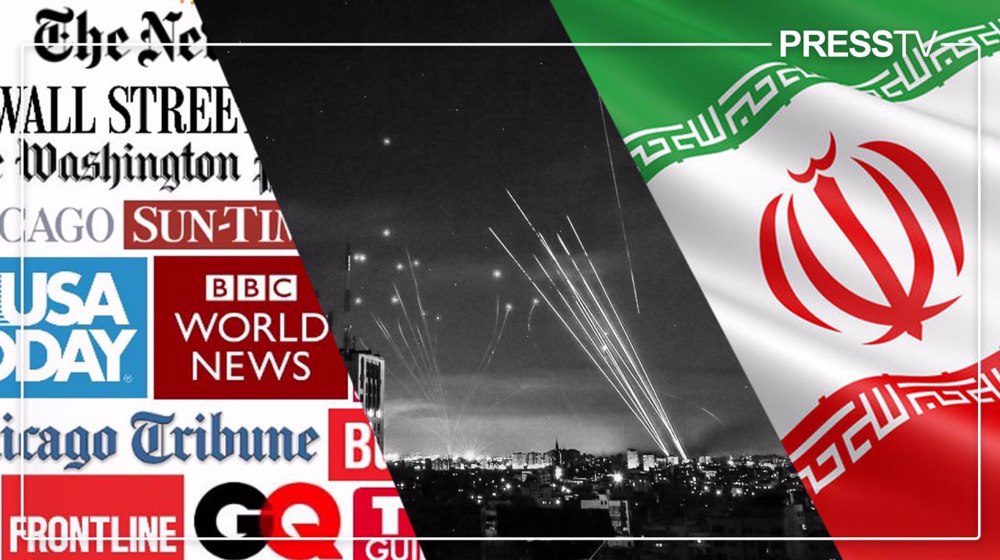
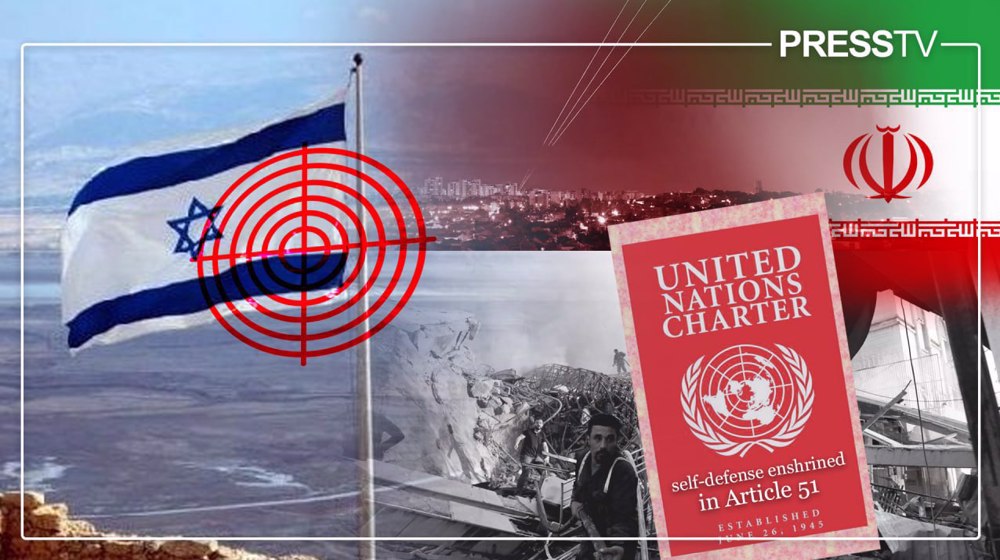
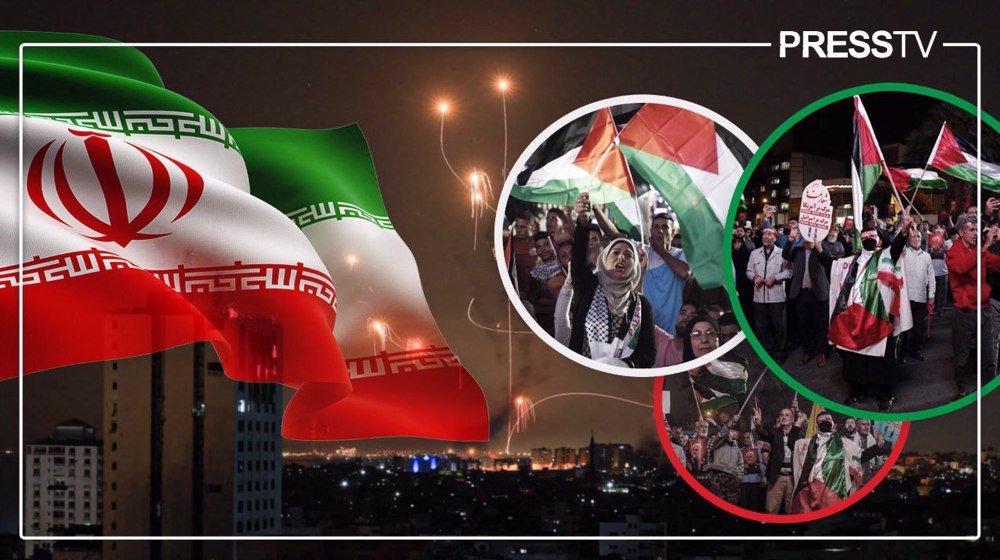



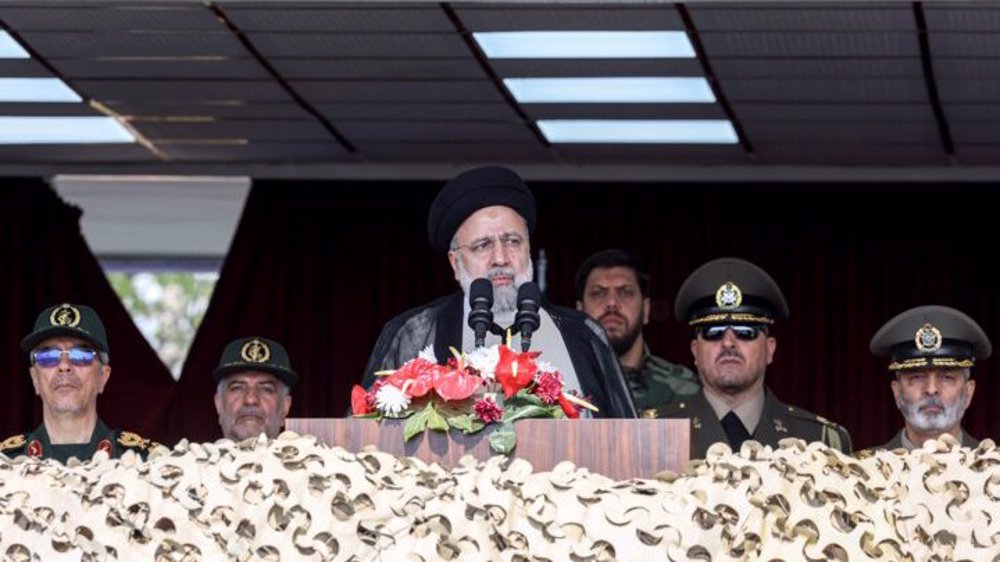
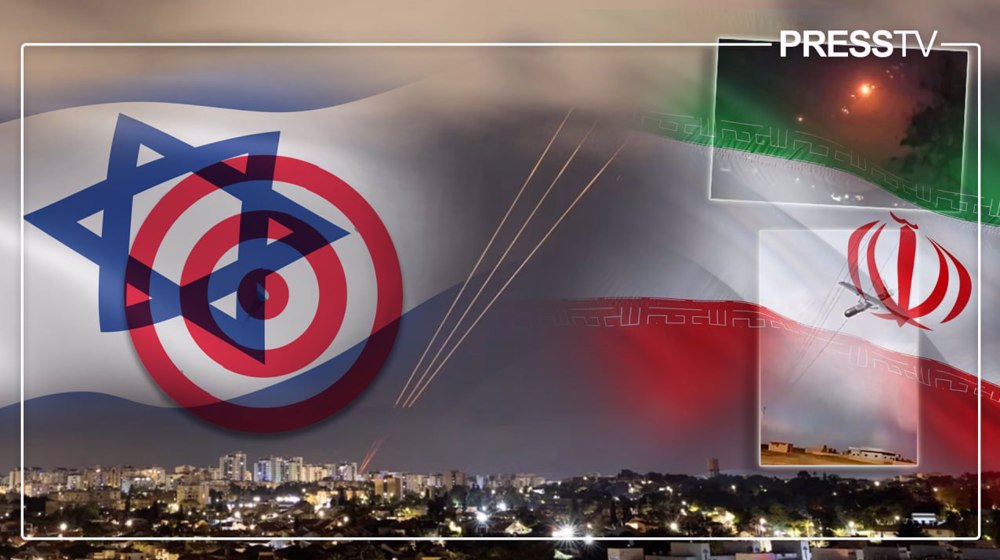

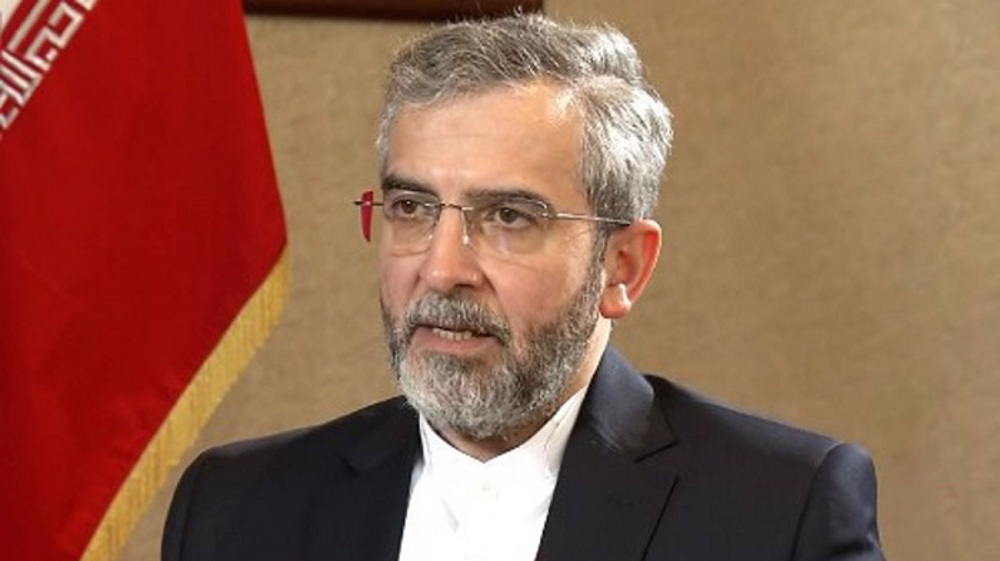
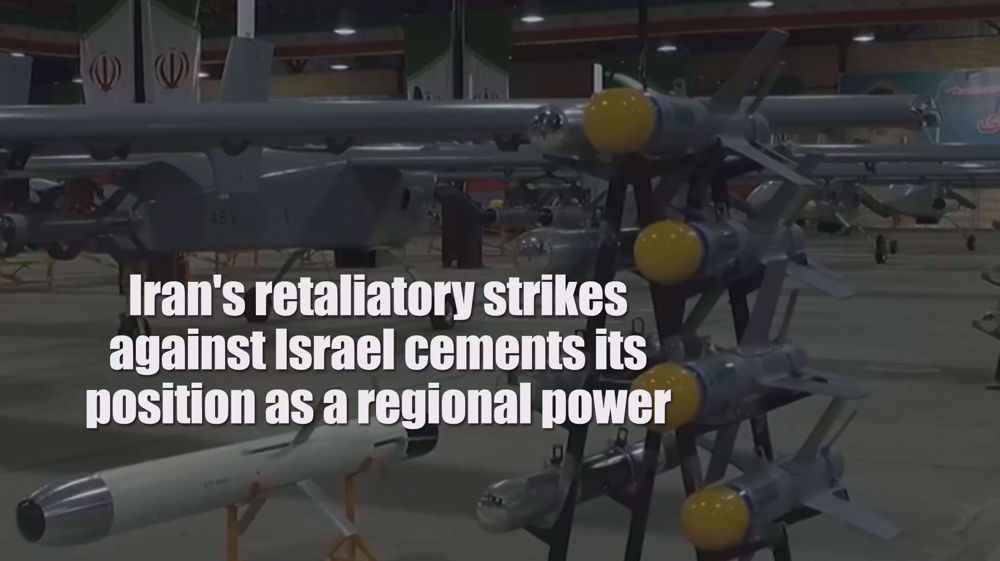

 This makes it easy to access the Press TV website
This makes it easy to access the Press TV website